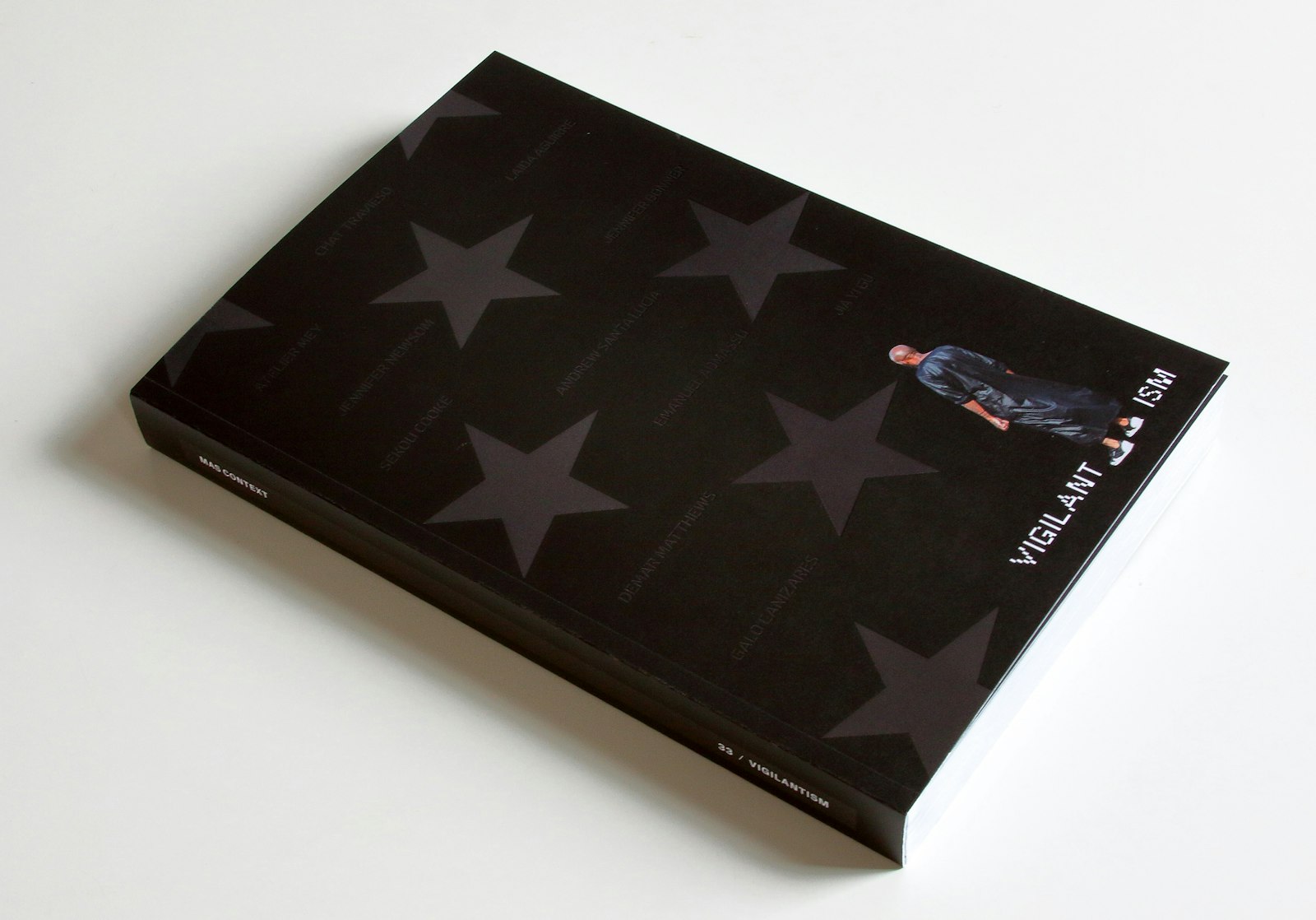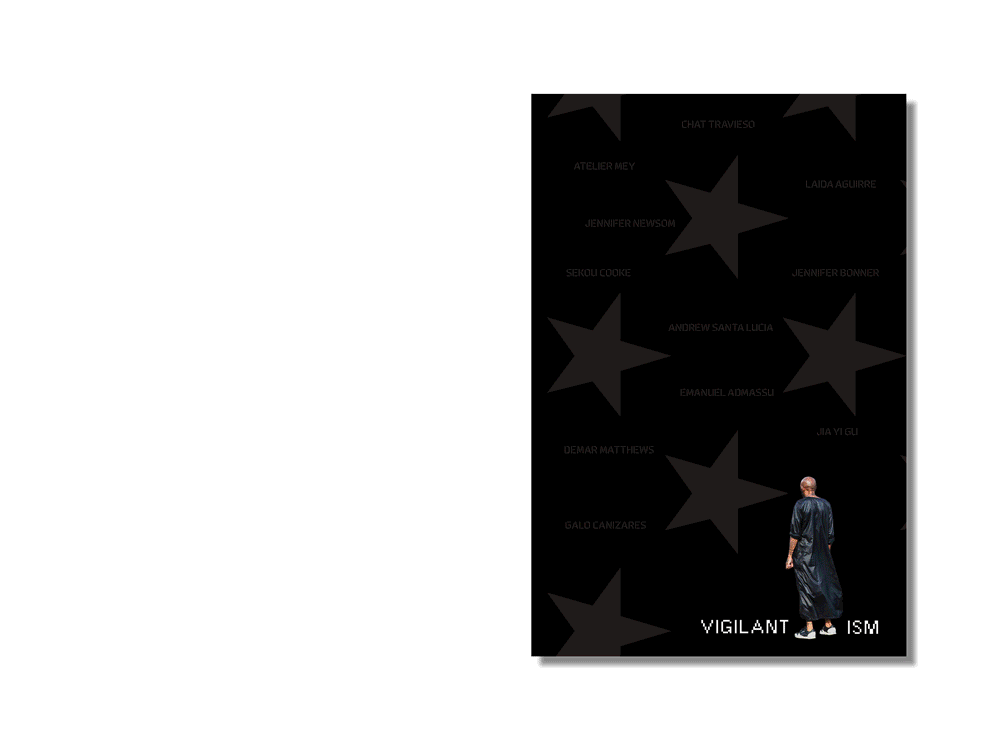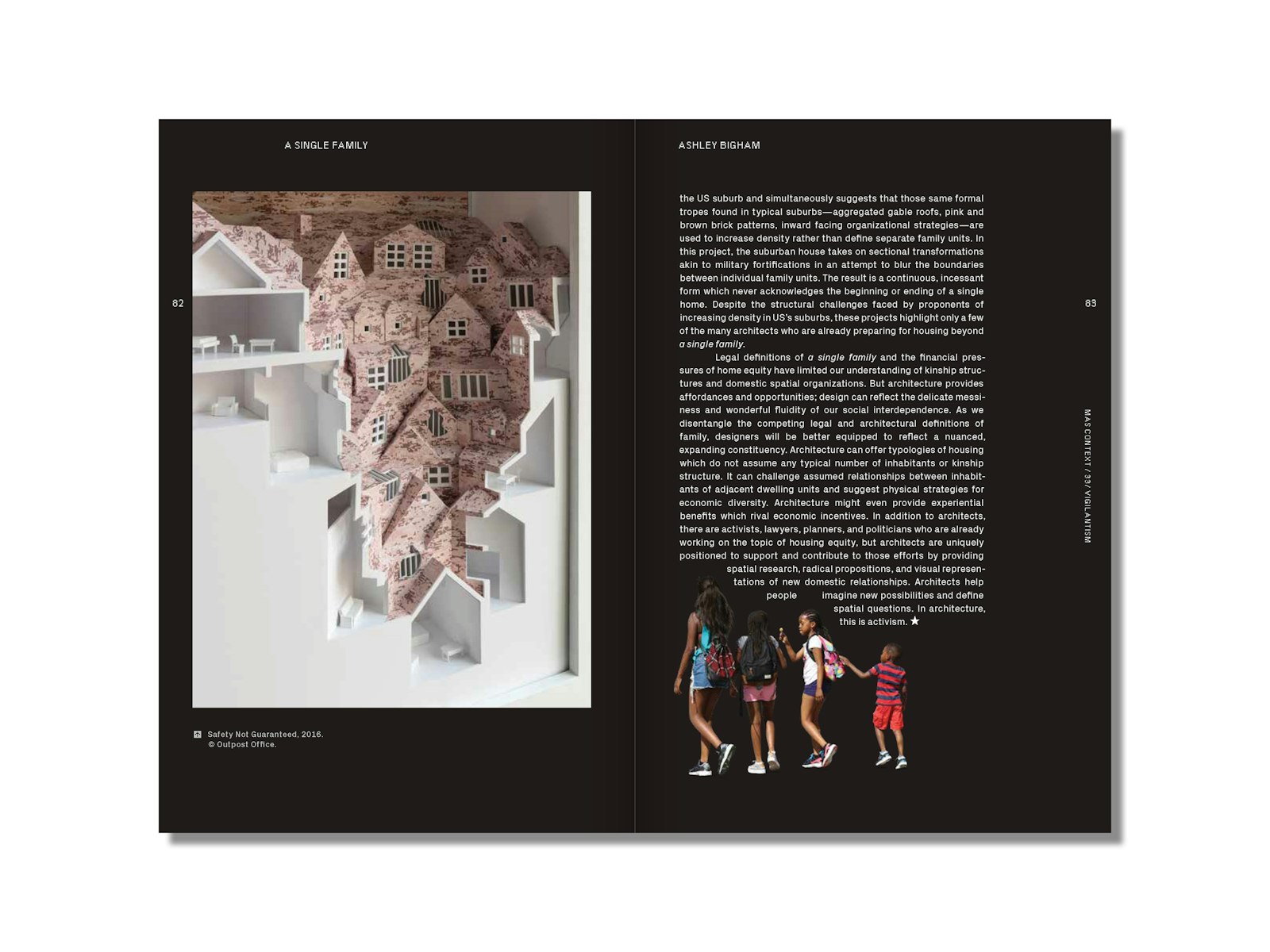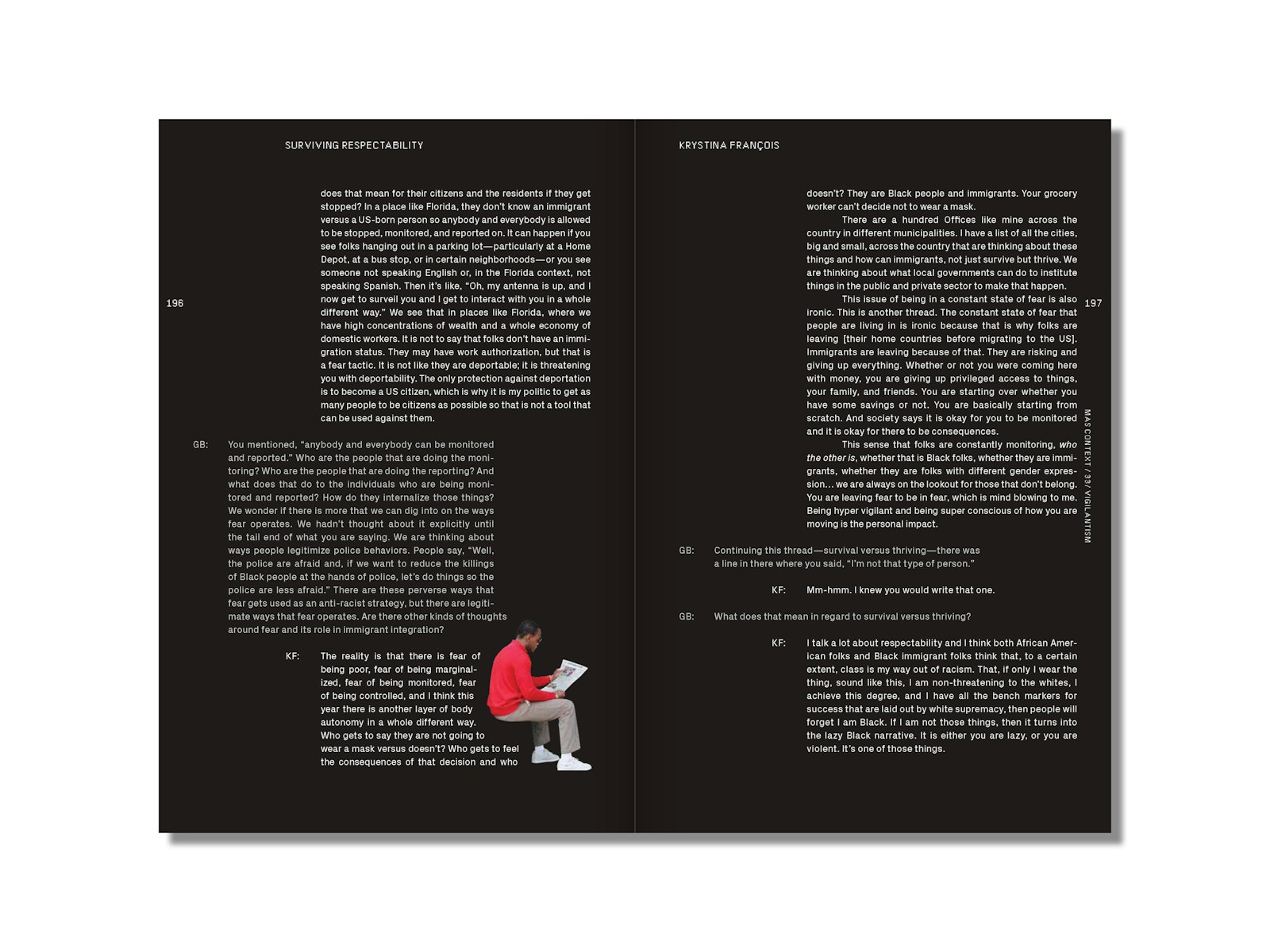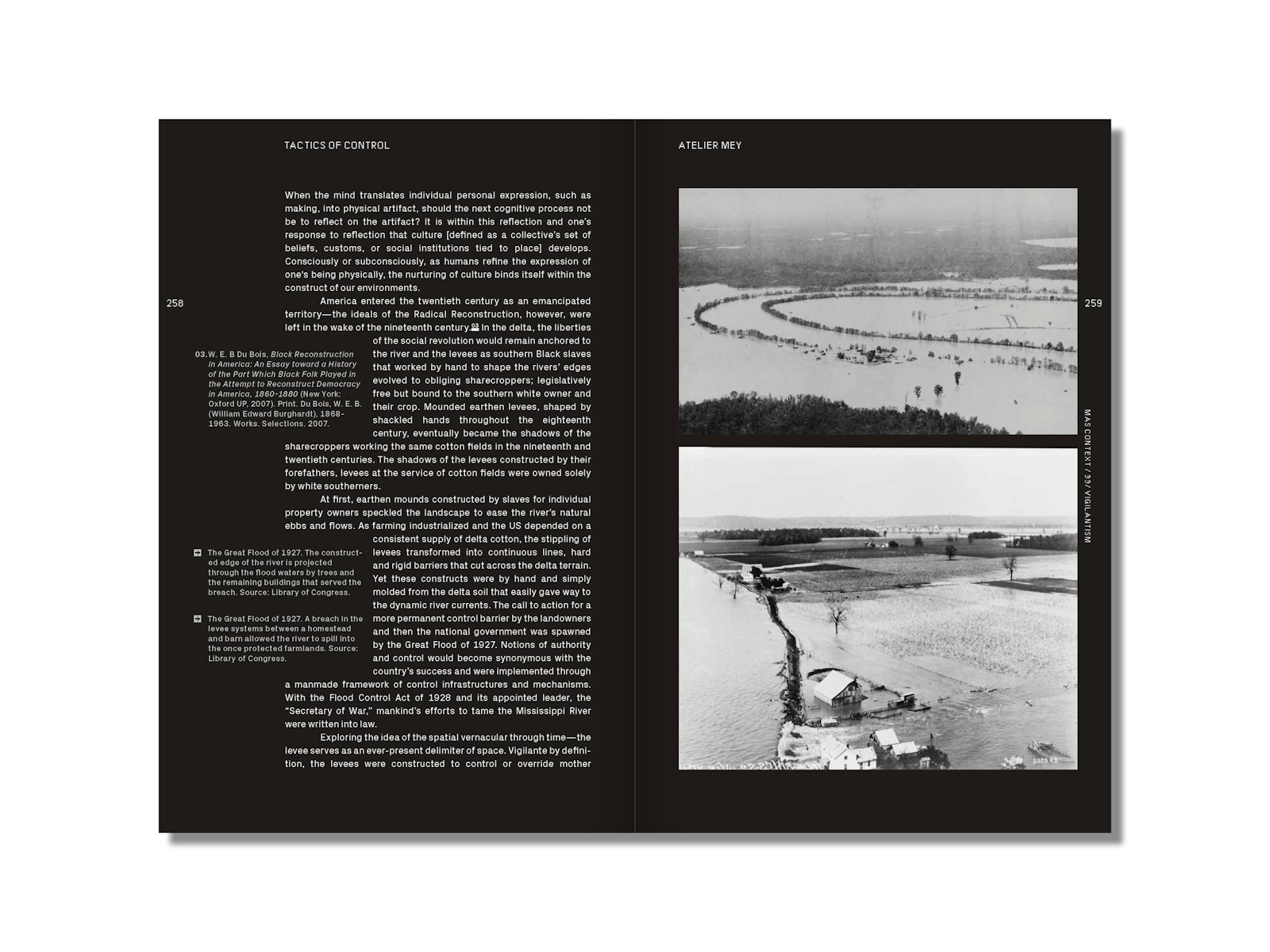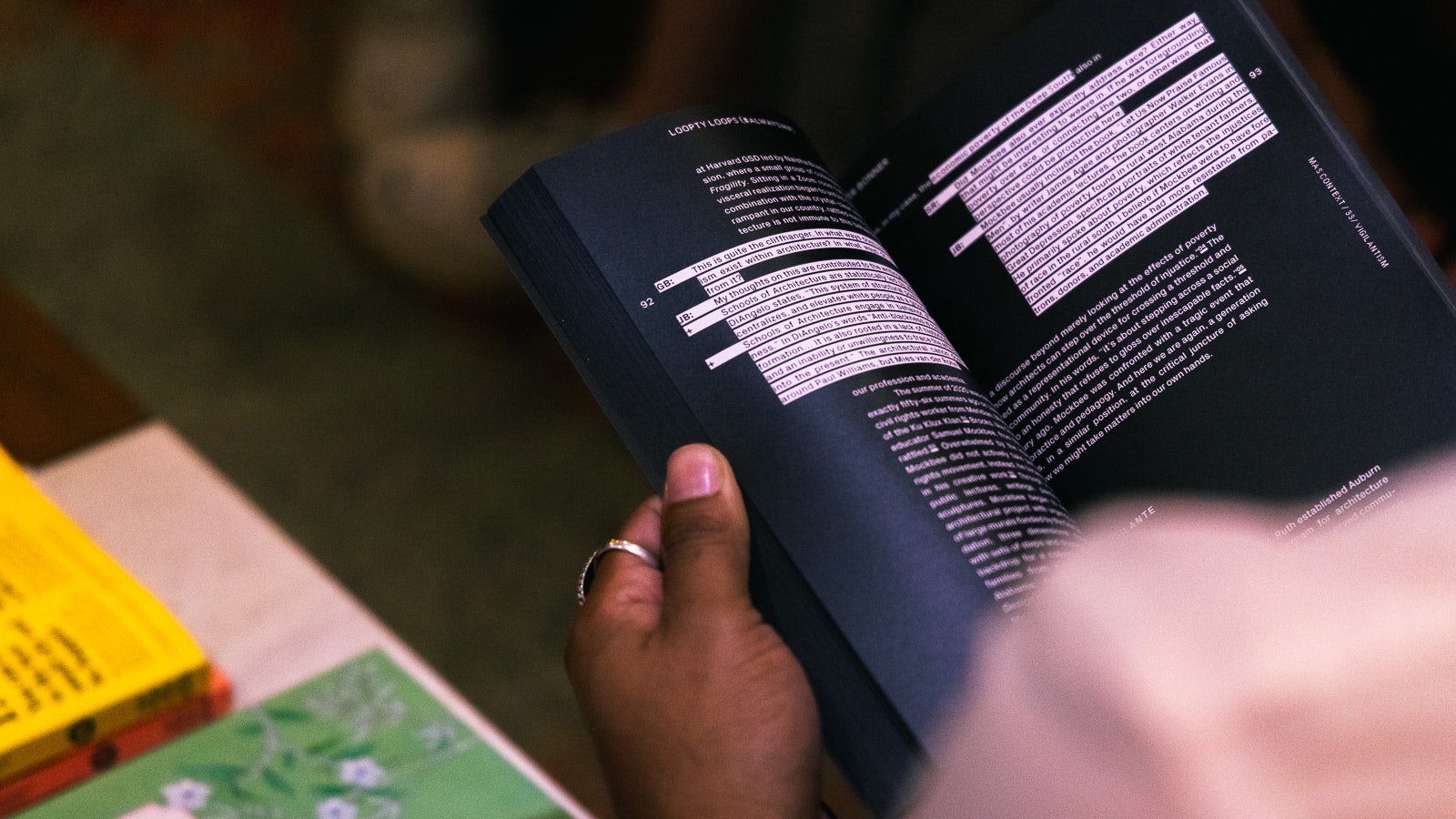In this issue we explore spaces of vigilantism, both historically and today. What are the spatial dimensions of vigilante encounters, segregation, violence, and exclusion, or conversely emancipation, liberation, and inclusion? Threshold, circulation, private vs. public, and other architectural delineations of space have become the subject of much controversy as footage of sexist and racist policing of these spaces emerge. Beyond spatial dimensions, which regulatory, institutional, aesthetic, and material expressions of vigilantism does architecture condition? What is vigilante behavior in highly digital and post-digital space? In pop-culture? In new media? How do technology and design become means for cultivating and expressing those behaviors? How do contentious political movements respond to, and draw from, vigilantism? What are the micro-, meso-, and macro-level dynamics of sociospatial acts of violence? Can vigilantism ever be good? Liberatory? And what are ways aggressors, resistors, and witnesses take on characteristics of vigilantes? To address these issues and more, vigilantism is a topic that needs to be explored.
Contributions by Emanuel Admassu, Laida Aguirre, Joseph Altshuler, Atelier Mey, Germane Barnes, Ashley Bigham, Jennifer Bonner, Galo Canizares, Sean Canty, Sekou Cooke, Krystina François, Jia Yi Gu, A.L. Hu, Demar Matthews, Katherine McKittrick, Zack Morrison, Jennifer Newsom, Cyrus Peñarroyo, Gary Riichirō Fox, Shawhin Roudbari, Andrew Santa Lucia, and Chat Travieso.
Bobby Joe Smith III designed Vigilantism highlighting the interplay of the paired down, tightly structured body of white text and black bodies; only using black, white, and gray; and creating the chapter numbers resembling a blue print.
- Graphic Designer
- Bobby Joe Smith III
- Guest Editor
- Germane Barnes
- Guest Editor
- Shawhin Roudbari
- Editor in Chief
- Iker Gil
- Contributing Editor
- Paul Mougey
- Printing and Binding
- Graphic Arts Studio
Project link
